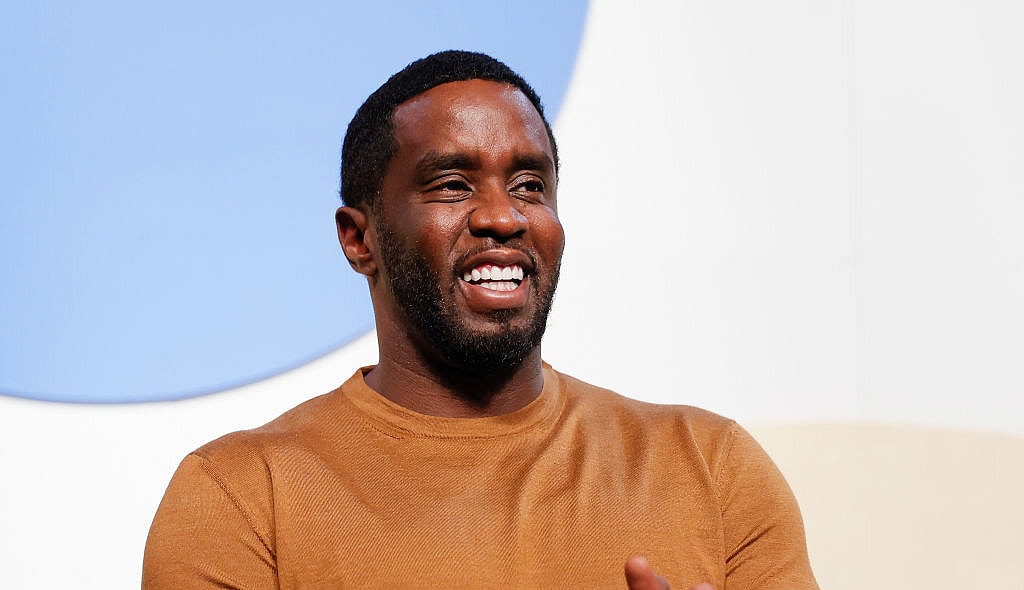“Notes on faith” is theGrio’s inspirational, interdenominational series featuring Black thought leaders across faiths.
In 2018, Cardi B challenged proponents of the #MeToo, #SayHerName and the Hollywood #TimesUp movements about their bias and respectability politics when she told us the music industry was an unsafe space for Black women in the world of hip-hop.
“A lot of video vixens have spoke [sic] about this and nobody gives a f***,” the rapper said. “When I was trying to be a vixen, people were like, ‘You want to be on the cover of this magazine?’ Then they pull their d*** out. I bet if one of these women stands up and talks about it, people are going to say, ‘So what? You’re a ho’. It don’t matter.’”
If we were really about addressing sexual violence, we would listen to the vulnerable people who constantly deal with unwanted advances from those in the industry, regardless of their work history in or adjacent to the sex work industry. We must resist the urge to dehumanize people and disregard everyone’s right to consent and dignity. The ideology that “these hoes ain’t loyal” fostered a perception that women in the music industry were “ever-ready” sex objects who were, therefore, not credible witnesses to unethical behavior, either in the workplace or in intimate encounters. Similar theologies have even been repurposed and made light of in the pulpit by none other than Rev. Dr Jamal Bryant.
The pervasiveness of indifference to sexual misconduct is breathtaking.
Historically, we have seen many unfortunate instances within the Catholic Church that have rightly cast attention on misconduct among its clergy. However, when we think about the church within the framework of African-American leadership, in particular, the similar weaponizing of loyalty and faith is a grave matter. There are several ways this plays out, such as allegiance to charismatic leadership versus accountability; misplaced faith and divine intervention (i.e., “It’s in God’s hands” and thereby circumventing the legal system); spiritual manipulation and gaslighting; selective (mis)interpretation of scripture, and fear of isolation. How many charismatic leaders have prioritized protecting their own rather than those they serve?
In the wake of recent allegations and lawsuits implicating Sean “Diddy” Combs as a perpetrator of sexual abuse, there is a renewed focus on grooming, harassment and other sexually violent behaviors victims endure, particularly within institutions of power. The allegations concerning Combs have been seemingly everywhere, so we do not have to unpack them further, but as it has also caused some to question the quality of his spiritual counsel, it is worth highlighting the ways the accusations against Combs bring to light barriers all victims face in speaking out.
To paraphrase one male music producer’s admission to us in a private conversation, “If you are going to cancel one music producer, executive, or artist for sexual misconduct, you may as well throw the entire industry in the trash.”
Within the church context, we can attest that whatever is going on in mainstream society is very well within the faith community. Dr. Alisha’s book “Flaming? The Peculiar Theopolitics of Fire and Desire in Black Male Gospel Performance,” explores the ways in which leadership in churches can be perceived as both predators and prey. This is illustrated through individual case studies involving the late megachurch pastor (and Rev. Dr. Bryant’s predecessor) Bishop Eddie Long, multiply accused as an alleged groomer and predator, and Pastor Donnie McClurkin and gospel singer-songwriter B. Slade (also known as Tonéx), self-avowed survivors.
As faith leaders and pastors ourselves, we have experienced the scrutiny and understandable criticisms church leaders receive — and we are neither here to excuse nor justify it. However, we do want to take seriously how the church world can effectively address abuses that take place within its ranks — and find ways to bring about true healing, justice and empowerment. Recognizing that all saints are susceptible to falling prey, we must maintain a standard that preserves integrity within leadership. As we model those standards in church leadership, we can transfer practices into the broader marketplace.
Recommended Stories
As Rev. Dr. Martin Luther King explained, we must understand the church’s role as the thermostat of society and not just its thermometer. Although King was speaking within the context of civil rights for African Americans, the same metaphor applies when it comes to challenging the church and society at large to turn up the heat regarding justice in this realm.
The model of conduct to walk alongside the most vulnerable was established by Christ. Even with the known data about misconduct, it is even more critical to understand the numbers are underreported. We have seen the long-term effects of a culture that dismisses the cries of victims; the impact falls not only on the individual but on the entire community — whether we realize it or not.
What are the barriers to disrupting a system of misbehavior? Often, there is a lack of adequate support systems for victims, including counseling, legal aid, and safe spaces to share their experiences. Here are three practices we should collectively avoid:
- Stigma and victim-blaming: Survivors often face stigma and blame, which discourages them from speaking out. In both the entertainment industry and the church, there’s a tendency to question the credibility of the survivors, especially if they are perceived to not fit a certain moral or social standard.
- Power imbalances: The significant power imbalance between abusers and their survivors frequently prevents people from reporting. Those in positions of power, whether in the music industry or church leadership, often use their influence to silence or intimidate survivors.
- Cultural and institutional silence: Both industries have a culture of silence where speaking out about abuse is discouraged. In the church, this is often compounded by the misuse of religious teachings to justify or conceal abuse.
To address these issues, we must foster a culture of accountability where abusive behavior is not tolerated and there are clear consequences. This involves setting and enforcing strict policies against abuse and harassment. Establishing clear, confidential, and non-retributive reporting procedures within these industries can encourage more survivors to come forward.
We must empower and protect survivors; providing platforms and support for survivors to speak out is crucial. This includes legal protections, financial support, and ensuring their stories are heard and taken seriously.
We need to support existing educational programs for character development and ethical leadership. Implementing educational programs about consent, respectful behavior, and the impact of abuse can help change the cultural norms that enable such behavior.
Our divine call is to protect the vulnerable. Whether a “video vixen,” love interest, major artist, music executive, or aspiring star, one should be able to pursue their dreams safely. And in the face of sexual misconduct, we should not permit a person’s background to dissuade us from vigilantly protecting survivors. By addressing these barriers and implementing strategies to overcome them, the entertainment industry, the church, the marketplace, and our communities can move towards a more ethical and respectful environment for all individuals — it is possible to do this! However, such an achievement requires not only institutional changes but also a cultural shift in how we view power, sex, respect, and the dignity of every person.
Creator, give us courage;
To share our stories,
To listen,
To pursue justice,
And make space for creativity without fear or anxiety about harm.
We may model ethical excellence by considering how we handle money, power, and sex.

Rev. Dr. Alisha Lola Jones is a faith leader helping people to find their groove in a fast-paced world, as a consultant for various arts and faith organizations and professor of music in contemporary societies at the University of Cambridge in Cambridge, England. She is an award-winning author of Flaming? The Peculiar Theopolitics of Fire and Desire in Black Male Gospel Performance (Oxford University Press). For more information, please visit DrAlisha.com.
Rev. Calvin Taylor Skinner is dedicated to empowering frontline communities in Knoxville, Tenn. and the United Kingdom. He uses Faith and Policy to address energy justice, criminal justice reform, voter education/mobilization, electoral politics, and global affairs. Along with his wife, Rev. Dr. Alisha Lola Jones, they lead InSight Initiative, a consulting firm focusing on capacity building and live events production.
Never miss a beat: Get our daily stories straight to your inbox with theGrio’s newsletter.










